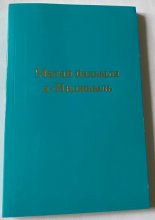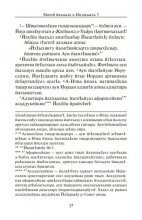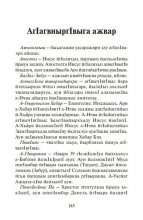


According to the 2010 census, the number of speakers of the Abaza language in Russia is 37,831 people. The Abaza live primarily in the Karachay-Cherkessia region of the North Caucasus.
IBT’s Abaza translation project is working simultaneously on the books of the Old and New Testament. A bilingual Abaza/Russian edition of Jonah was published in 2019, and Ruth/Esther came out in 2020. An illustrated collection of "Gospel Parables" was printed in 2020. And now IBT has released the first full book of the New Testament - the Gospel of Matthew.
The word “gospel” is of Greek origin and means “good news”. The New Testament, including the Gospel of Matthew, was written in Koine Greek in the first century A.D. Over the course of the last 20 centuries it has been translated into thousands of languages around the world. This is the first-ever publication of Matthew in the Abaza language.
The events described in the Gospel take place in the first century A.D. in Palestine, which was under the rule of the Roman Empire at that time. According to tradition, the author of this Gospel is Matthew, also called Levi, a tax collector who was called by Jesus Christ to follow Him as one of the twelve apostles. From the very beginning of his account, Matthew places the story of Christ in the context of sacred history, beginning his book with the genealogy of Jesus and showing that He is a direct descendant of the patriarch Abraham and is of the royal line of Israel’s King David. Matthew emphasizes that Jesus is the Messiah (Christ) and Savior chosen by God, whose coming was predicted by the Old Testament prophets. In doing so, Matthew quotes numerous specific passages from the Old Testament. References to these are given in footnotes in the translation. In the text of Abaza Matthew, there are also section headings and cross-references to parallel passages in the other Gospels (Mark, Luke, and John).
Since not all books of the Bible have yet been translated into the Abaza language, this publication includes a table giving the Abaza names of all Bible books together with their Russian names, so that readers could more easily identify the references. The publication also includes maps, photographs of biblical sites, and a brief glossary of biblical terms and words which may be unfamiliar or difficult to understand.
The Gospel of Matthew in Abaza is available in PDF format in the e-books section of the IBT website. Translation work is continuing on other Scripture portions.

Share: